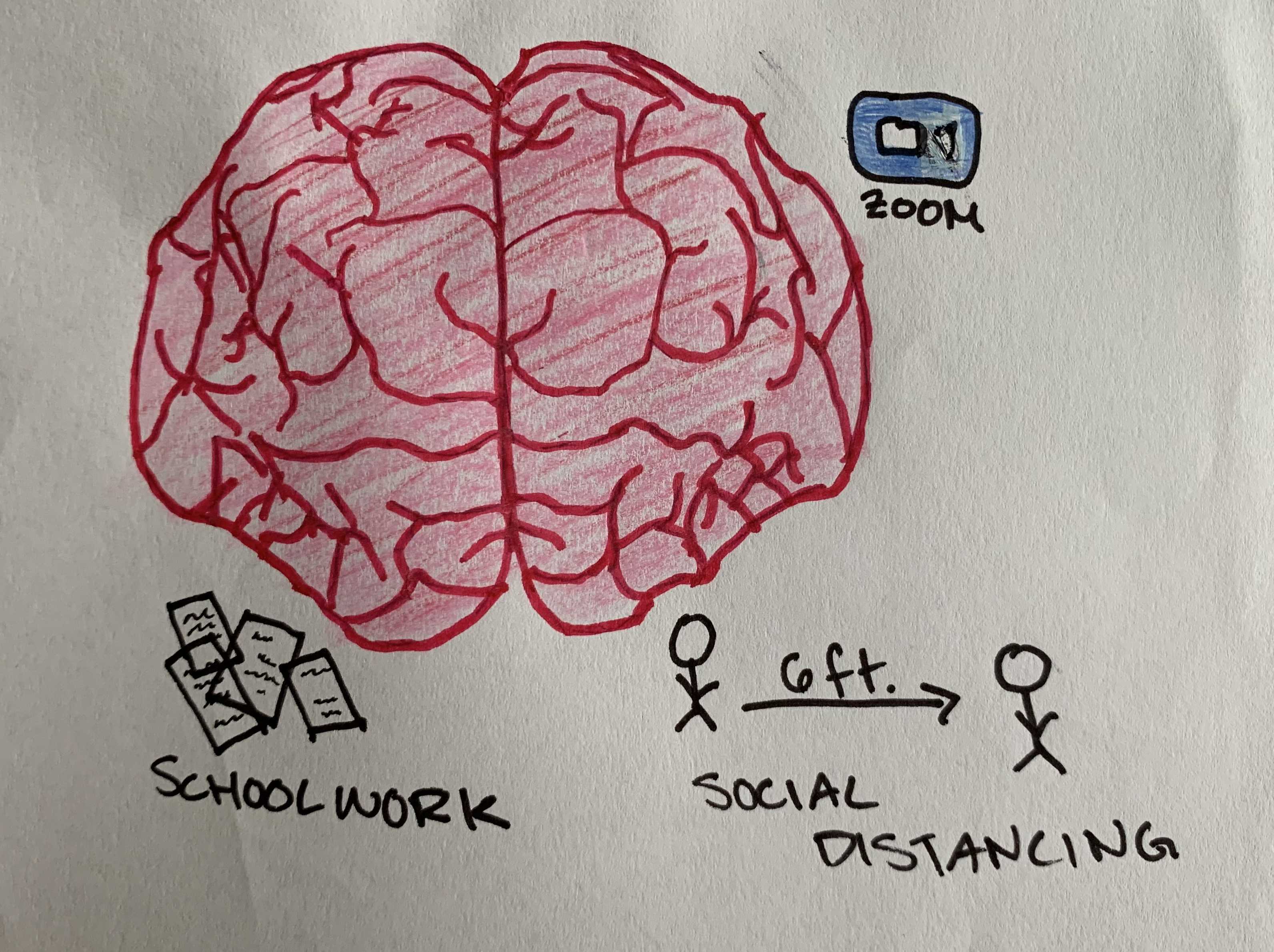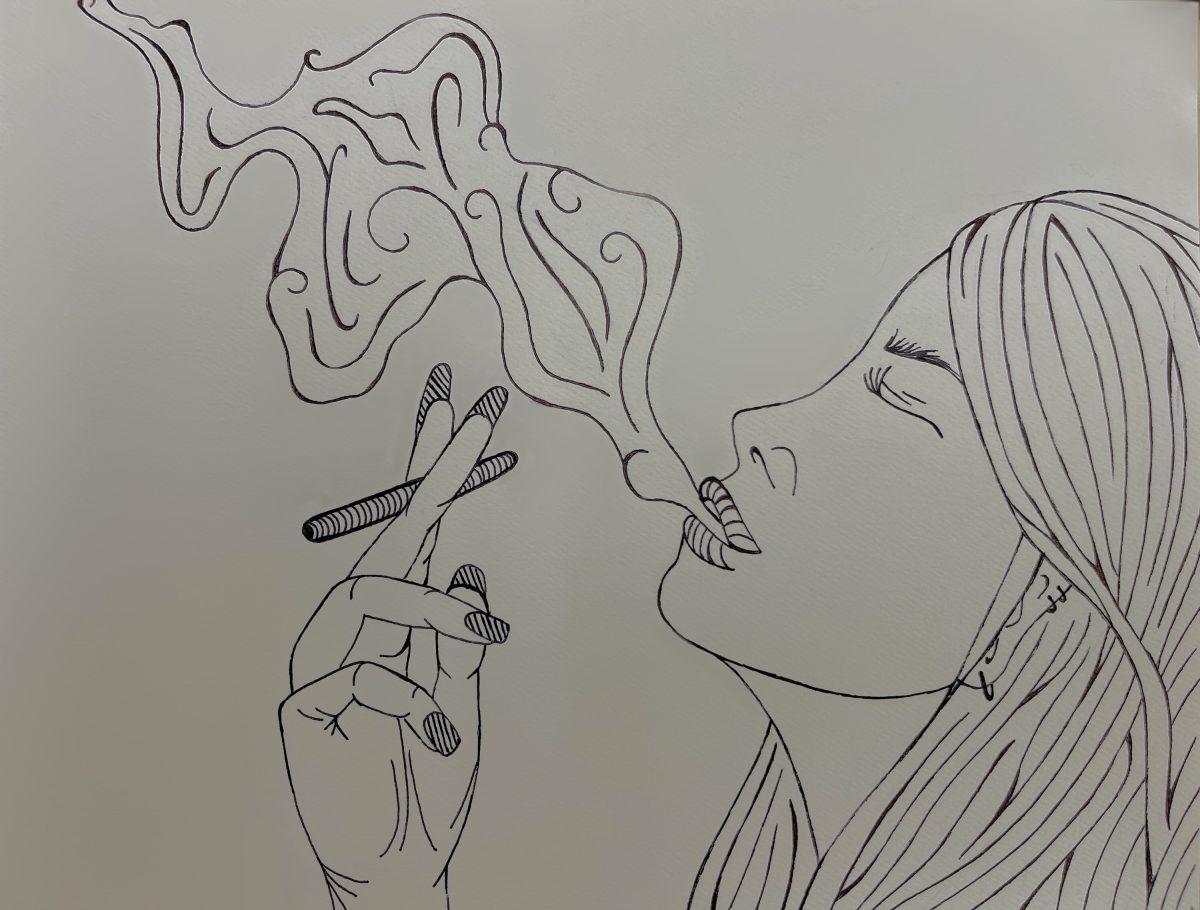A study conducted in spring of 2020 with more than 2,500 students across seven public universities in the United States found that 85 percent of students were experiencing high to moderate levels of stress. So, how are students at San Marin doing?
Senior Ella Rubey runs a body positivity Instagram account. She started the account (@lady.positivities) to remind people that they are more than what they look like and to help people accept themselves.
“I think a lot of people are struggling with this [quarantine], but I think just getting your mind out of stress and loneliness, I think it is so important to pick something, a board game, a card game, or walking your dog,” Rubey said. “Anything can help someone.”
Aside from the shift to online school, another adjustment has been regarding the schedule, with half the number of classes each semester, but a whole years’ worth of content to go over.
“I think learning full year course material in one semester has definitely ramped up the pace of work, in turn stressing students out more than in the past,” senior and President of the Bring Change to Mind (BC2M) club Gracie Enslin said.
Although some students have been struggling with the new 4-by-4 schedule put into place this year, other students have found it preferable.
“In my opinion, it’s been easier,” junior Theresa Tyson said. “We only have to focus on work for certain classes instead of all of it.”
Another adjustment has been the lack of social interaction in-person school provides. Online learning has made it difficult to make connections with teachers, and maintain or strengthen relationships with peers.
“Personal connections are so important, especially for students that struggle with low confidence or anxiety,” San Marin psychologist Elizabeth Bartling said. “There are decreased opportunities to ask for help, share an observation, or give and receive individualized feedback from both peers and teachers.”
School provides a way for kids to easily interact with people, and online learning has made that harder.
“As a student, it’s been tough,” sophomore Dakari McFarland said. “Especially since Zoom is a new thing for everyone, but we’re managing.”
Counselor Caroline Hoj had a similar point of view on the impact of learning online.
“Globally, the lack of in-person social interaction has impacted everyone’s mental health, including students. I’ve seen students find creative ways to stay social, but there is no denying that the lack of social interaction on campus has impacted student’s mental health,” Hoj said.
There are resources online that are available to students to reach out to about their mental health. One resource is the Marin County High School Student Virtual Wellness Speaker Series, in which comedian Michael Pritchard will begin a three month series of free mental health events to help students during the pandemic.
Hotlines:
The National Suicide Prevention Hotline: 1-800-273-8255
Crisis Text line: Text SUPPORT to 741-741
National Alliance on Mental Illness: 1-800-950-6264

This picture shows what might be affecting students’ mental health during quarantine. Such examples include social distancing, schoolwork, and Zoom.





































